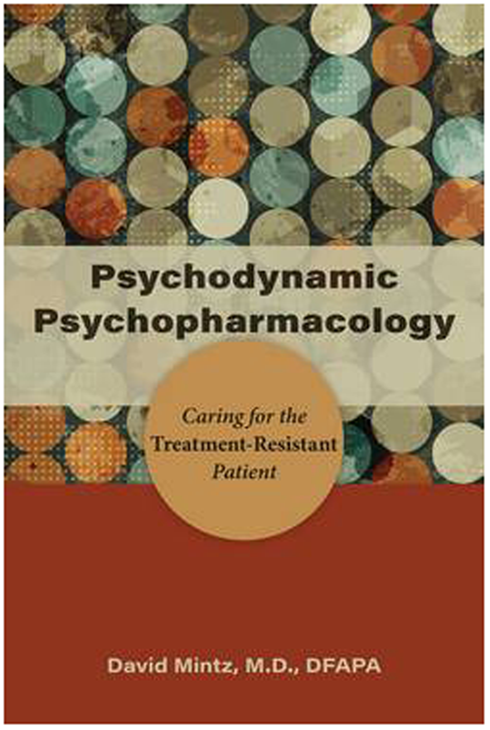
David Mintz's book on psychodynamic psychopharmacology invites us to consider how rather than what to prescribe. Echoing Balint, he reminds us that the pharmacotherapeutic alliance and the manner in which the doctor interacts with the patient are instrumental to outcomes. He educates us on factors that affect treatment, such as patient characteristics (attachment style, placebo, treatment preference) and prescriber characteristics (warmth, promoting autonomy, supporting decision-making). In my experience such factors are difficult to define or teach and often fall under the broad umbrella of ‘patient-centred care’. Mintz engages with patient-centred care on a deeper level. He teaches us how to formulate our patients, how to avoid a body–mind split, how to address patients’ ambivalence about treatment and how to contain countertransference prescribing leading to polypharmacy and iatrogenic harm.
The book is well structured, starting with defining psychodynamic psychopharmacology and its large evidence base. It provides a framework for considering treatment resistance at the level of meaning and subsequently breaks down the overarching principles of psychodynamic psychopharmacology. It is suffused with case formulations and transcripts of conversations with patients. We meet a patient whose psychosis was protecting them against the depressing reality of an earlier loss; the prescriber took this into account when deciding to prescribe less aggressively and to allow for grieving to take place. Examples of patients using their medication in countertherapeutic ways or being unhealthily attached to their tablets made me consider my own practice.
Prescribing in a truly integrated way can feel like a novelty and sometimes lonely in a predominantly biological psychiatric paradigm. You are not alone. Mintz guides you with a manual on how to approach the engagement and maintenance phase of prescribing. There is a self-assessment toolkit and a glossary, all invaluable tools for clinical practice and teaching purposes.
This book does not antagonise but it complements the science of psychopharmacology. It should be in the curriculum of psychiatric if not medical training. It is likely to restore faith in psychiatry as a profession and in our roles as doctors of the mind and the body.
Declaration of interest
H.K. collaborated with David Mintz in a presentation at the RCPsych Congress 2022. No financial support was involved.




eLetters
No eLetters have been published for this article.